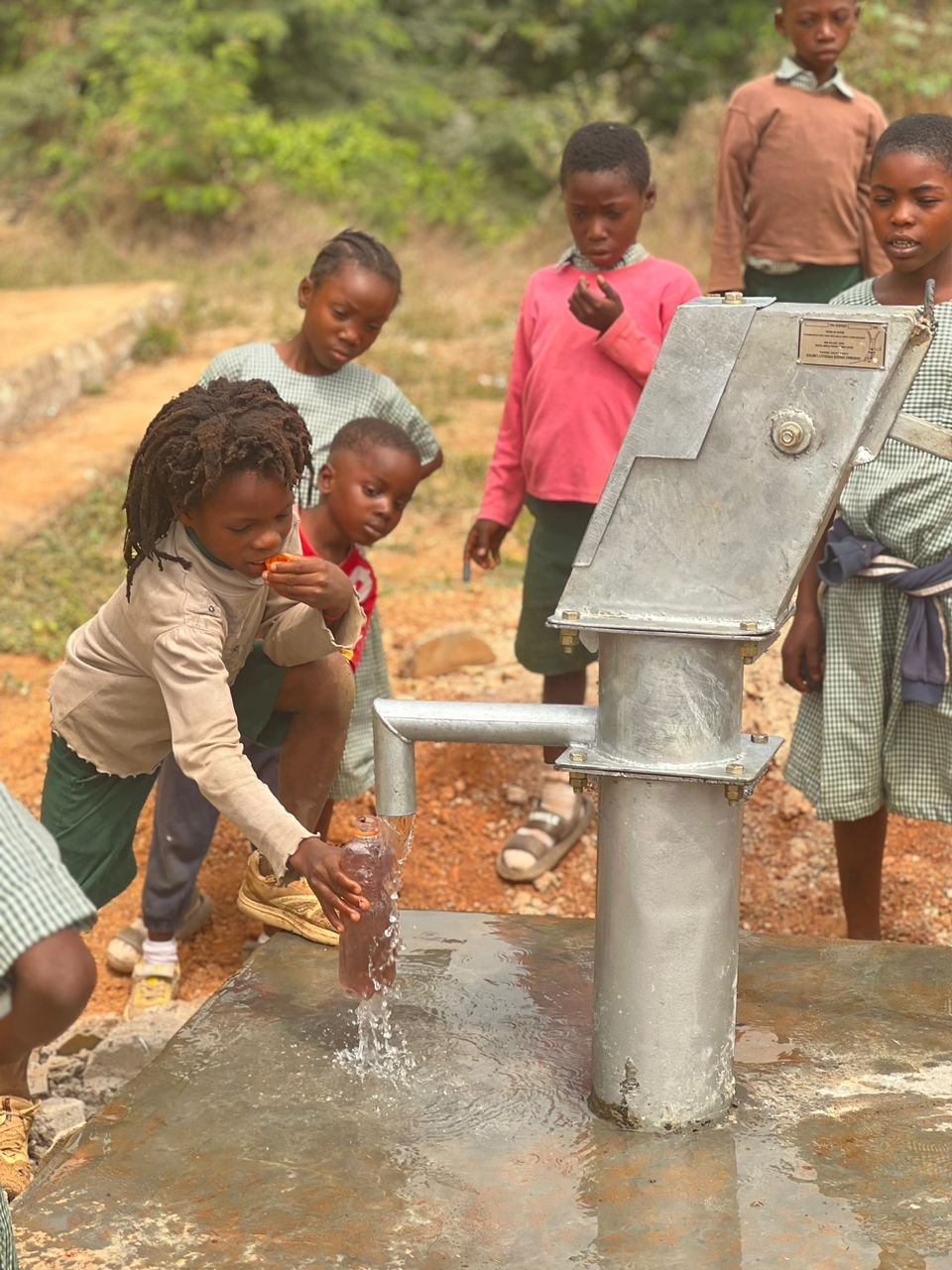
CLEAN WATER
The water crisis is real. It is affecting women, children, families, and farmers. Women and girls in sub-Saharan Africa are spending hours a day fetching dirty water which leads to illness and disease, robbing entire communities of their futures.
At Digging Well, we are passionate about improving people's lives in Sub-Saharan Africa and aiding the potential of poorer communities. We seek to engage like-minded people and partner with the simple goal of providing clean water for schools.
Building Hygienic Water right on school property prevents students from drinking infected water and studying in a poor sanitary environment

FINDINGS ON CLEAN WATER
Globally, at least 2 billion people use a drinking water source contaminated with faeces. (WHO 2019)
3 in 10 schools – or 28 per cent – do not have basic sanitation services, impacting 539 million children. (UNICEF, 2021)
out of 10 – or 42 per cent – of schools do not have basic hygiene services, impacting 802 million children. (UNICEF, 2021)
Achieving universal coverage in schools globally by 2030 requires a 14-fold increase in current rates of progress on basic drinking water, a three-fold increase in rates of progress on basic sanitation, and a five-fold increase in basic hygiene services. (UNICEF, 2021)
Almost half of the schools in the world do not have handwashing facilities with soap and water. (WHO/UNICEF 2020)
Every day, over 700 children under age 5 die from diarrhoea linked to unsafe water, sanitation and poor hygiene. (UNICEF, 2021)
1 in 4 people – 2 billion people – around the world lack safe drinking water. (WHO/UNICEF 2021)
For children, water is life: without it, they cannot survive. Safe drinking water is essential for their health and survival, and unsafe water can make them sick or even kill them. (WHO/UNICEF 2021)
Further Reference: